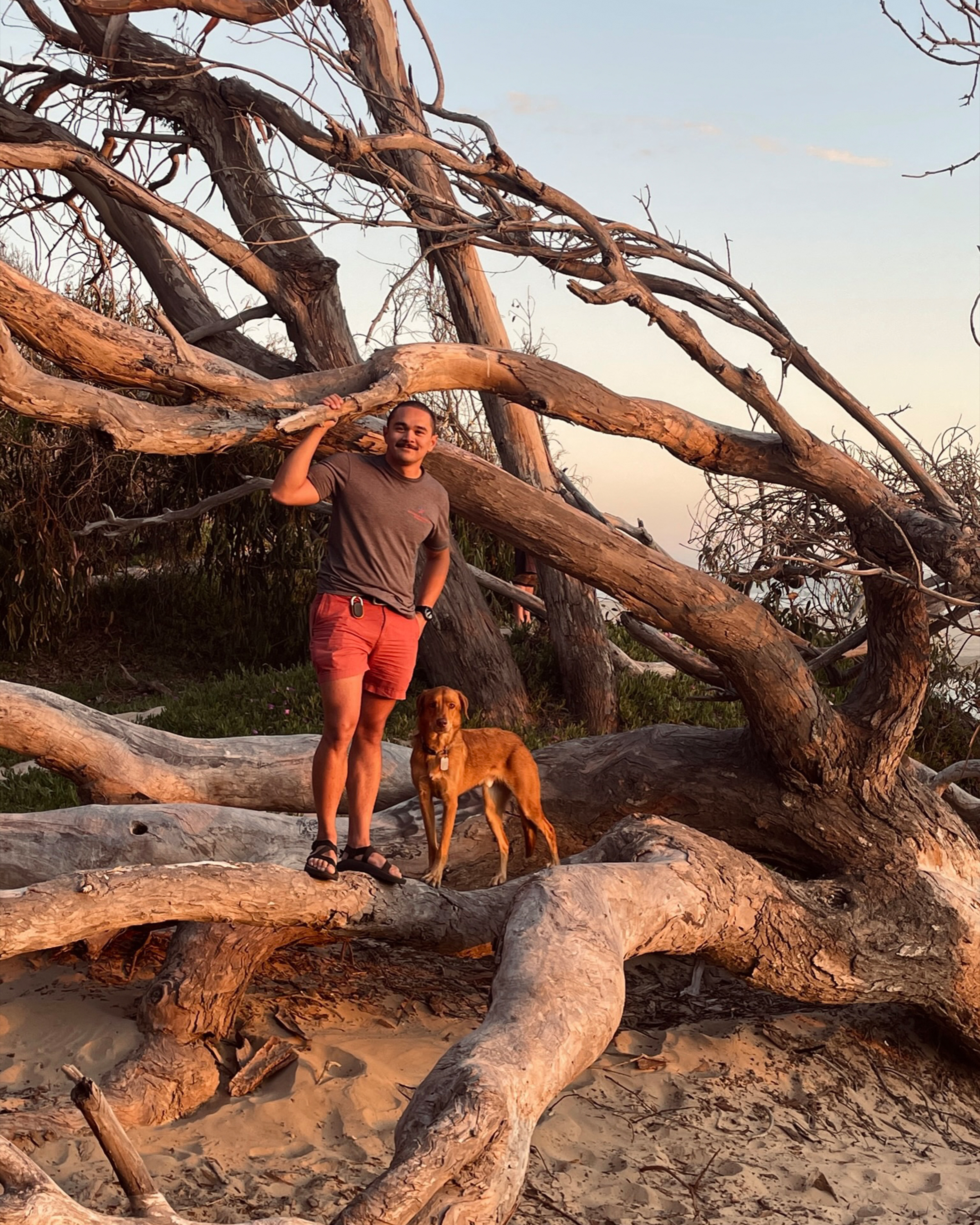I transferred to Princeton in 2020. Most of us can surely recall how odd and challenging of a time it was, and my transition to the University was no different. I expected Princeton to be challenging in a few ways: academically, socially, and logistically. All those things were true. What I did not expect was the degree of mental challenge I encountered, which was likely exacerbated by the isolation of remote learning and my difficulty balancing academics with my personal life. So, after driving from Southern California to Princeton in the summer of 2020, my partner and I packed up and moved back home when I began a leave of absence in the fall of 2021.
I spent my leave trying to be as introspective as possible, recalibrating my mental and physical health after the peak of the pandemic. I spontaneously signed up for a marathon despite having never run a half. I returned to one of my favorite past times: road trips and camping in California. I broke the cliché veteran habit of waking up early every day and allowed myself to sleep in. In sum, I tried to slow down, focus on happiness and health, and interrogate myself on what I really wanted in life.
In this blog, I share four lessons from my gap year. I also share each lesson’s relevance to being a transfer student at Princeton. In doing so, I hope to make future transfer students’ transitions to Princeton easier and to remind current transfers that success at Princeton is not measured purely by GPA.
---

In no particular order, her are four insights from my leave of absence:
I. Life is not a race.
A race has a set course and boundaries. There are winners, and there are those who aspired to win. Life is different. What constitutes a “win” in life is highly subjective. Your only competition is against yourself, and the only finish lines are the goals you hope to achieve.
I emphasize this because coming to Princeton as an older student may be at the front of some transfers’ minds. The age gap can be quite salient here—I have been older than many of my preceptors. Yet there is no reward for graduating from Princeton one year earlier. Complete your degree in the time that is best for you and judge your grades not in comparison to other students but against the standards you have set for yourself.
II. You will not regret self-care.
There is a future version of you watching themselves—watching you—through their memories. The more you take care of yourself now, the better that prospective version of you will be. Exercise regularly. Eat well. Put effort into maintaining friendships. Do not strive for perfection. Strive for progress and consistency. But recognize that you will fail. Learn from those mistakes.
Self-care is, of course, important for everyone. I bring attention to it because some of our older transfers have a different relationship with mental health than the Gen-Z students that make up the near-entirety of the of non-transfer student population. (To be clear, I mean that as the utmost compliment to them.) Some transfers—particularly the transfers who served in the US Armed Forces—may think that forcing their way through every obstacle is the best method. Others may fear failure so much that they neglect exercise or socialization. Both, I know from experience, are poor choices. Invest in self-care and enjoy its returns.

III. Forgive yourself.
There will be times when you pursue a goal and fail. That failure may come because you exhausted all efforts but still fell short (running a marathon under a certain time; finishing Princeton with a certain GPA), or it may be because you neglected to put your best foot forward (planning to exercise in the morning but snoozing the alarm; watching Netflix rather than doing your readings). But we all make mistakes. Forgive yourself for doing so and be introspective about your shortcomings.
Imposter syndrome can be a particularly pernicious and persistent issue for transfer students. This year, we have a population of 59 transfer students in an undergraduate enrollment of 5,548, meaning there is approximately one transfer student for every 94 non-transfer students. These figures can contribute to some transfers’ ideas that they do not belong at Princeton, that their acceptance was a mistake. Thus, I feel it is imperative that transfers forgive themselves. Performing poorly on a test or forgetting a reading is not evidence that you are a fraud who slipped through the cracks. You are human and therefore prone to mistakes. If you were flawless, you wouldn’t need Princeton.
IV. Remember that you can always leave.
If you feel like you no longer enjoy something—a relationship, a job, a path in life—consider leaving. Self-honesty can reveal that you really ought to leave, but it can also show you that your feelings were misplaced or misguided. The thought of leaving may actually make you realize just how much you do enjoy something.
I believe that every transfer should remember that leaving Princeton is a valid option. This may be startling to read—during the transfer pre-orientations that I’ve helped run, it has certainly surprised incoming cohorts. But transfers should know that it is an option, be it in the form of a gap year or dropping out altogether. I say this not to advocate for transfer student departures, but because all of us worked so incredibly hard to get to Princeton that we sometimes forget leaving is an option. Remembering that we are not proverbially handcuffed to the University can actually strengthen and our desires to be here. Feeling as if quitting is not an option can rob one of their agency, but knowing that it is a choice and choosing to continue forward is empowering and builds confidence.
---
When I reflect on spending my leave of absence recalibrating my mental and physical health, these are some of the most striking lessons that come to mind. My return to Princeton has been challenging, but it has also been manageable and quite successful because I am mindful of these principles.
Some current transfers or transfer applicants may agree wholeheartedly with these ideas. Some may only like a few, and others may object to all four entirely. That is okay. These are not heaven-descended axioms. They are merely my lessons and what have worked for me. So, experiment and find what works for you. Make the most of this time because you’ve earned it. And know that while you do that, you’ll always be supported.






